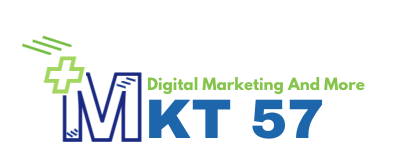Understanding IACS: The Backbone of Global Maritime Safety and Environmental Protection

What is IACS? A Closer Look at the International Association of Classification Societies
The International Association of Classification Societies (IACS) is a prestigious non-governmental organization made up of the world’s leading maritime classification societies. These bodies establish and uphold technical standards for ship and offshore structure design, construction, and maintenance.
Since its formation in 1968, IACS has worked relentlessly to strengthen safety, security, and environmental protection at sea. It comprises 11 full members that collectively oversee over 90% of the world's cargo-carrying vessels. Major members include DNV, Lloyd’s Register, Bureau Veritas, and the American Bureau of Shipping (ABS).

The Mission and Objectives of IACS
IACS's mission is to promote safe, environmentally responsible, and efficient maritime operations. It works toward this goal by:
- Developing and publishing Unified Requirements (URs) to standardize classification criteria.
- Advising the International Maritime Organization (IMO) on technical and safety matters.
- Providing consistent, high-quality audits across classification societies.
- Engaging in continuous improvement through global collaboration and R&D.
For more official information, visit the official IACS website.
Core Responsibilities of IACS
1. Standard Development and Harmonization
To maintain consistency across its members, IACS develops Unified Requirements (URs) and Unified Interpretations (UIs). These cover essential areas like:
- Hull strength
- Machinery and propulsion systems
- Fire safety
- Navigation and control systems
2. Collaboration with IMO
IACS holds consultative status with the International Maritime Organization (IMO), contributing technical insight to global regulatory frameworks. IACS's recommendations influence key IMO conventions like:
- SOLAS (Safety of Life at Sea)
- MARPOL (Marine Pollution)
- ISM Code (International Safety Management)
- ISPS Code (Security of Ships and Port Facilities)
3. Vessel Classification and Surveys
Member societies inspect and certify vessels through rigorous surveys and audits. Classification ensures that ships comply with design and safety norms. Regular checks are conducted at construction, during operation, and for renewal.

4. Promoting Maritime Innovation
IACS leads initiatives in advanced maritime technologies, addressing challenges such as:
- Decarbonization and fuel transition
- Autonomous and remotely operated vessels
- Cybersecurity standards for smart ships
- Climate adaptation strategies
Ongoing innovation ensures the maritime industry adapts effectively to global demands and climate change.
Membership Criteria and Quality Systems
To become a member of IACS, a classification society must demonstrate:
- Technical proficiency and engineering excellence
- Global service capability
- Adherence to the IACS Quality System Certification Scheme (QSCS)
- Transparent governance and ethical compliance
IACS ensures integrity through audits and peer reviews, maintaining public trust in classification standards.
The Future Outlook of IACS
As maritime transport evolves, IACS plays a crucial role in guiding the transition to green, digital, and secure shipping. The organization continues to adapt its rules for:
- Zero-emission vessels
- Electrification and hybrid propulsion
- Advanced digital inspection tools
- Regulatory compliance in a globalized world
With a global footprint and deep technical knowledge, IACS shapes the future of marine safety and performance.
Conclusion
The International Association of Classification Societies is more than just a standards body — it is the backbone of global maritime safety. Through unified rules, collaboration with IMO, and ongoing innovation, IACS ensures that vessels are safer, cleaner, and better prepared for the challenges of tomorrow.
To explore further technical resources and maritime guidance, visit the official IACS portal.
If you want to read more information about how to boost traffic on your Website just visit --> The Insider's Views


Comments
Post a Comment